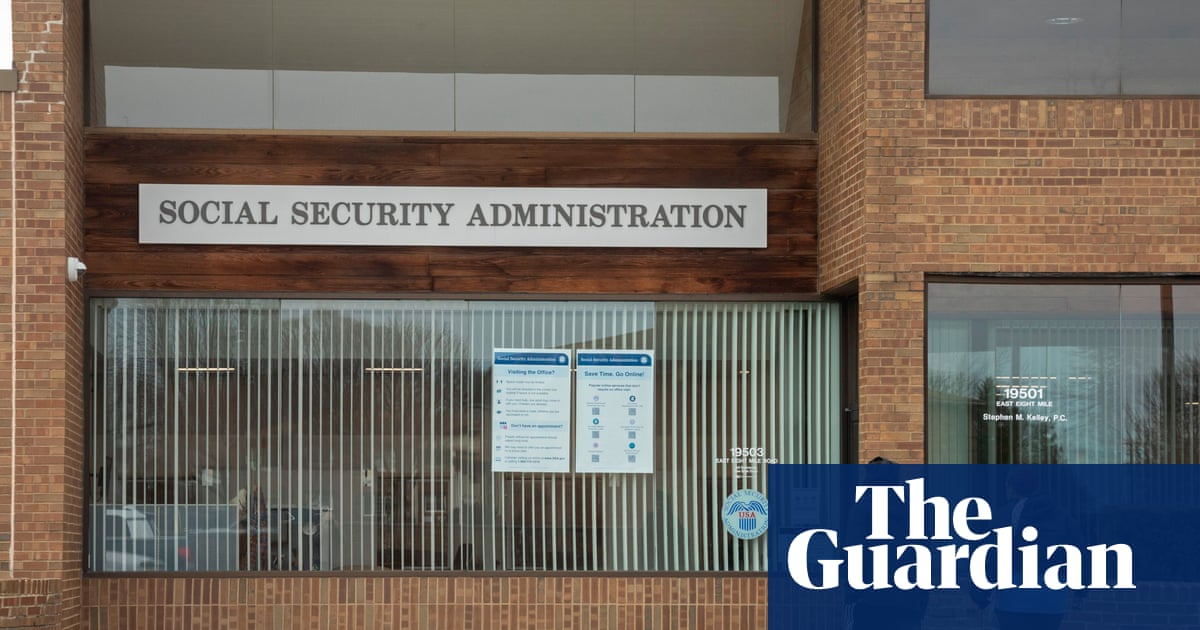Millions Left in Limbo: The Impact of Recent Changes to Social Security Numbers for Immigrants
Millions of legal immigrants face new challenges in their quest for employment in the United States, thanks to a recent and quietly implemented change by the Social Security Administration (SSA). This change has halted the automatic issuance of Social Security numbers (SSNs) to work-authorized immigrants, creating significant barriers for those who legally wish to pursue jobs and integrate into society.
Understanding the Enumeration Beyond Entry Program
The Enumeration Beyond Entry (EBE) program was introduced in 2017 under the first Trump administration. This initiative was designed as a collaborative effort between the SSA and the Department of Homeland Security (DHS). It allowed the United States Citizenship and Immigration Services (USCIS) to provide the SSA with vital information about applicants seeking work authorization or naturalization. Under the EBE program, eligible immigrants received their SSNs automatically as part of their application process, streamlining their transition into the workforce and helping them navigate other social systems.
A Sudden Halt
On March 19, 2025, the SSA abruptly paused the EBE program without any public announcement. This decision effectively put millions of immigrants in a precarious position, forcing them to apply in person for SSNs at SSA offices—a process that is not only inconvenient but also prone to additional delays, especially given the agency’s current staffing shortages. Applicants must now navigate this bureaucratic maze, often incurring lost job opportunities due to complications arising from the lack of a Social Security number.
Disruption of Lives and Opportunities
The implications of this rule change are embodied in the experiences of individuals like Lee Thacker, a 52-year-old from Wales. After moving to Minnesota and receiving his work authorization card, Thacker found himself unable to accept a job offer because he had not received an SSN. His employer required a background check that included a valid SSN—a cruel irony for someone legally authorized to work in the U.S. Yet, without the number, Thacker was rendered effectively jobless.
His story sheds light on how these policy changes can create significant hurdles for immigrants who are trying to establish their lives in the U.S. Despite paying $260 for his work authorization application, the denial of an SSN meant he had to go out of his way to visit an SSA field office, only to learn about the halt to automatic SSN issuance.
Economic Contributions Amid Doubts
Interestingly, undocumented immigrants contribute significantly to the economy. In 2022, they paid an astounding $25.7 billion in taxes to Social Security, even though they are not eligible for benefits. Notably, some misinformation has circulated around these contributions. Figures such as billionaire Elon Musk and former President Trump have not only questioned the rationale behind the EBE program but have also made unfounded claims about fraudulent benefit acquisition. Experts emphasize that unauthorized immigrants do not receive Social Security benefits in large numbers, contradicting assertions made by these public figures.
The Burden on Immigrant Families
Individuals like Hope Rudasill express how the policy change has impacted their families directly. Her husband, who recently applied for a work authorization card, hadn’t anticipated the delays in receiving an SSN. The absence of a valid number has obstructed his job search and even prevented him from applying for a driver’s license, which complicates daily life. Rudasill shared how the inability to open a joint bank account places additional strain on couples trying to navigate the complex process of adjusting their immigration status.
Legal Perspectives and Community Response
Immigration lawyers like Jennifer Bade have witnessed firsthand the adverse effects this pause has on their clients. With many immigrants facing challenges, from taking time off work to language barriers, the need to visit SSA offices creates an added layer of stress and hurdle that can lead to confusion and frustration. The lack of a SSN can hinder basic activities, from job applications to securing loans, all of which are critical for rebuilding their lives in a new country.
As noted by Democratic members of the House Committee on Oversight and Government Reform, efforts are being made to reverse this decision. Concerns have been raised about the agency’s treatment of immigrant applicants, especially given reports that the acting commissioner approved the pause despite potential legal hurdles and the widespread impact.
The Bigger Picture: SSA’s Operations and Challenges
Compounding these difficulties is the broader context of SSA operations. The agency is currently facing reduced staffing, with efforts to cut at least 12% of its personnel, which makes the processing of in-person applications even more cumbersome. With the implementation of further restrictions on phone communications, it is predicted that millions will now need to visit SSA offices in person for assistance that was once handled through the EBE program.
In fiscal year 2024, there were approximately 3.24 million employment authorization documents approved. The abrupt freeze on the EBE program underscores how policy changes can significantly strain both the immigrants affected and the agencies intended to serve them.
Looking Ahead: An Uncertain Future
For many, the immediate ramifications of halting the EBE program are evident. Individuals are left awaiting answers, facing the possibility of further delays that complicate their aspirations for employment and stability in the United States. As the SSA reviews its policies and procedures concerning enumeration for noncitizens, the future remains uncertain for millions of immigrants seeking to integrate into American society. The outcomes of this evaluation will undoubtedly shape the experiences of countless individuals in the years to come.


